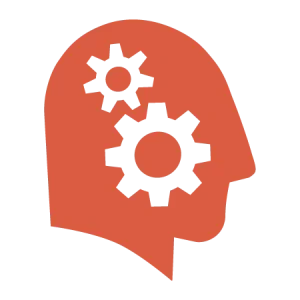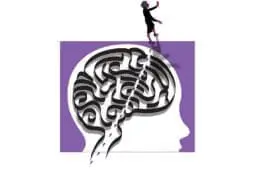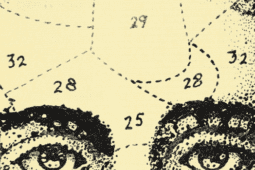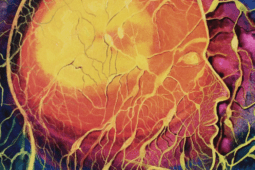
Science & Research
Exploring the evidence behind what we doPsychotherapy At The Crossroads
A New Vision of Integrative Mental HealthAn alternative to the old talking cure is expanding the knowledge base of psychotherapy as we recognize the role that exercise, nutrition, spirituality... Read more
Facing Our Fears
Why We Avoid Doing Couples TherapyAs neuroscience increasingly shows how wired we are to our intimate partners, an important question arises for therapists: Why do we primarily continue to see... Read more
Our Potential for Good
Altruism as an Evolutionary ImperativePsychologist Darcher Keltner believes that underestimating our capacity for altruism does human nature a disservice. Read more
The Heart of Darkness
Plumbing the Nature of EvilPlumbing the eternal question: Why are there bad people? Read more
The Alphabet Soup
Diana Fosha on the Convergence in Today’s TherapiesDiana Fosha talks about why so many acronymic therapies—ADEP, DBT, IFS, ACT—resemble each other, and what that says about the therapy field today. Read more
Bringing Up Baby
Are We Too Attached?While therapists may consider some intuitively appealing ideas about human development---like attachment theory---beyond dispute, the researcher's job is to... Read more
The Verdict Is In
The Case for Attachment TheoryFifty years of research has confirmed that the emotional quality of our earliest attachment relationships is central to our well-being as adults. Read more
Breaking Free
A Mind-Body Approach to Retraining the BrainPutting the power of neuroplasticity to work in the consulting room. Read more
Gender and the Brain
Louann Brizendine's Work Stirs New ControversyNeuropsychiatrist Louann Brizendine has stirred up plenty of controversy by arguing that men and women have very different brains. Read more
The Health Implications of Early Trauma
How Research into ACES is Shaping Our Understanding of Childhood AdversityWhile it's common knowledge that childhood trauma can have far-reaching consequences for adult mental health, its impact on adult physical health is less... Read more
Lions Without a Cause
Men's Animal Instincts Don't Fit the Modern WorldLet's face it: love means something quite different to men and women. A look at other species of social mammals offers some remarkable insights into the... Read more
The Rise and Fall of PaxMedica
Welcome to the new era of brain-based therapyIn the 1970s, the rise of Prozac, the DSM-III, and "evidence-based" therapies brought the appearance of coherence and order to mental health professions under... Read more
Brain to Brain: January/February 2010
The talking cure goes beyond wordsAs we learn more about the brain, it becomes apparent that therapists need to pay at least as much attention to the body and nervous system (both their own and... Read more
The Brain's Rules for Change
Translating cutting-edge neuroscience into practiceFor the firs time, we're beginning to understand how to directly delete emotional meanings attributed to disturbing past events. Read more
Complexity Choir
The eight domains of self-integrationAs unlikely as it may sound, the mathematics of complexity theory could offer us the key to the elusive secrets of mental health and personal well-being. Read more
A Warm Bath for the Brain
Understanding oxytocin's role in therapeutic changeHow to get through to clients caught in fight-flight-freeze mode. Read more
Reversing Chronic Pain
Ten Steps to Reduce SufferingMore and more chronic pain patients are being referred to therapists after their physicians conclude that they show every appearance of being healed. Read more
The controversy over whether the ever-expanding number of recommended vaccines is putting children at risk for autism. Read more
Who Do You Think You Are?
The Enduring Mystery of TemperamentClinicians have long considered theories that emphasize inborn predispositions as antiquated and even reactionary. but the work of researchers like Jerome... Read more
Brain to Brain
Applying the Wisdom of Neuroscience in Your PracticeThis article first appeared in the September/October 2008 issue. Anyone who’s ever worked with trauma survivors knows the therapeutic challenge of... Read more
It's a Jungle in There
We're Not as Evolved as We ThinkThe human brain is an anachronistic menagerie that confronts the psychotherapist with the challenge of treating a human, a horse, and a crocodile, all... Read more
A Quiet Revolution
Therapists Are Learning a New Way to Be With Their ClientsIf you're a therapist these days, it's hard to open a publication—or your mailbox—without hearing about mindfulness. Are the Eastern wisdom traditions... Read more
Too Much Information
Field Notes from the Genetics FrontierAs genomic science is increasingly able to map our future, therapists must help families make difficult decisions. Read more
The Precarious Present
Why is it So Hard to Stay in the Moment?All of us ruminate, bringing up the cud of old, unresolved problems. But far from being idle mind chatter, most of these mental distractions are actually the... Read more
A Week of Silence
Quieting the Mind and Liberating the SelfHow would it feel to sit completely still for a week, not communicating with anyone, just tuning in to the seemingly chaotic jumble of your own thoughts? A... Read more
Being There
The Dalai Lama Gets Buddhism and Neuroscience to Go Face to FaceIn Washington, D.C., this fall, the Dalai Lama brought together a distinguished group of contemplatives and world-class scientists to explore the links between... Read more
Alice in Neuroland
Can Machines Teach Us to Be More Human?As neuroscience was becoming the topic du jour of the therapy field, we sent Senior Editor Katy Butler to MIT on a mission. The result was, literally, a... Read more
Mirror Mirror
Emotion in the Consulting Room is More Contagious Than We ThoughtEmpathy may be the life's blood of good therapy, but scientifically, it's remained a rather fuzzy concept. Now a serendipitous lab discovery is showing how... Read more
Altered States
Why Insight by Itself Isn't Enough For Lasting ChangeIncreasingly, neuroscience is making it clear that therapists rely too much on the consulting room drama of insight and not enough on good, old-fashioned... Read more














